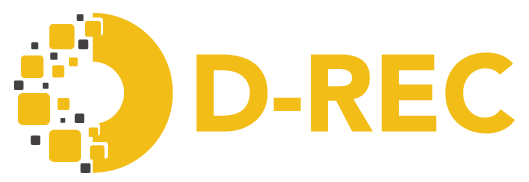Momentum to unlock the potential of distributed renewable energy continues to grow at pace with Salesforce committing to buy the largest number of Distributed Renewable Energy Certificates (D-RECs) to date. Over the next eight years, Salesforce will purchase 280,000 megawatt hours (MWh) worth of D-RECs as part of its commitment to match 100% of the electricity the company uses with renewables.
Today, more than 750 million people lack access to basic electricity, while 2 billion more suffer from inadequate and unreliable access. Distributed renewable energy projects can provide much needed access to electricity and help reduce emissions in communities around the globe. However, until now, emerging economies have been largely excluded from corporate purchasing for a number of reasons, including difficulty aggregating and certifying multiple small-scale projects.
“Nearly 95% of corporate renewable energy purchases today take place in North America and Europe. We need to ensure the rest of the world isn’t left behind,” said Megan Lorenzen, who leads power sector decarbonization for Salesforce and is co-author of the More than a Megawatt report.
Lorenzen continues, “small, decentralized renewable energy projects can, in many cases, deliver greater impact than large utility-scale facilities. Especially in regions where energy access is limited, these projects can positively transform lives and communities around the globe.”
Salesforce purchase helps drive critical social and environmental benefits
Salesforce’s D-RECs purchase will focus on procuring projects to help deliver social and environmental benefits to communities. Potential projects within this portfolio include:
- Brazil: A project that aims to replace old diesel generators with a solar-powered microgrid for a remote community along the Amazon River, reducing fuel consumption by more than 50% and benefitting around 1,000 people.
- India: A solar-powered microgrid in Nagaland, an eastern state in India, where an isolated mountain community will receive electricity for the first time. In addition to initial energy access, the community will receive training on how to use the energy productively, such as for operating rice hullers.
- Sub-Saharan Africa: A solar and storage installation at a hospital that will help improve electricity reliability while controlling rising electricity costs. The system will power ventilators, organ support equipment, and operating rooms. Moreover, 30-40% of the direct jobs created by these projects will be assigned to women.
- Southeast Asia: A solar microgrid in the Borneo region of Malaysia, which is home to 72% of rural Malaysians who lack access to electricity. The project will pair a solar system with a micro-hydro installation to provide reliable power.
“Salesforce was instrumental in the development of this high-impact procurement approach,” said Nick Fedorkiw, CEO, Powertrust. “However, the impact of this commitment goes far beyond Salesforce’s purchase. Companies across the globe have an appetite for high-impact renewable energy purchases and can’t find the supply they need. Now, as proven by Salesforce, companies can open up new sources of supply while maximizing social impact.”
These projects will be located in schools, hospitals, public service facilities, or in disadvantaged communities and deliver on the UN Sustainable Development Goals outcomes aligned to climate resilience (goals 9 and 11), universal energy access (goal 7), gender equality (goal 5).
Significant financing needed to achieve equitable access to electricity
To reach global net zero emissions, annual investments in clean energy need to expand to $1 trillion by 2030 – a 3x increase from existing levels. This must include mobilizing billions of dollars per year toward new clean energy infrastructure in emerging markets to ensure equitable access to electricity.
Gian Autenrieth, co-lead of the D-REC initiative said, “ this is a watershed moment for the D-REC instrument and initiative. By committing to purchase D-RECs, Salesforce is demonstrating that corporate climate action and sustainable development go hand in hand, with tangible benefits for communities who currently do not have access to clean, reliable energy. The D-REC instrument supports corporate climate leaders in reaching their climate goals while increasing energy access for communities in the global South. With this momentum, we hope to continue scaling, channeling finance from corporate climate leaders to innovative distributed renewable energy projects. United in the goal of expanding energy access to those without.”
-Ends-
About D-REC:
D-REC is a new type of energy attribute certificate that bridges corporate sustainable finance from multinationals to the distributed renewable energy sector in emerging markets. This catalyses new capital to provide access to affordable clean energy (SDG7). By focusing on distributed renewable energy projects in communities with energy poverty, D-RECs go further than traditional renewable energy certificates, as they provide a direct link to positive social development, and clean energy additionality.
The D-REC Initiative is led by South Pole and Powertrust, with support from Shell Foundation, Good Energies Foundation, Signify Foundation, GIZ-develoPPP, the UK’s Foreign, Commonwealth and Development Office (FCDO), International Finance Corporation (IFC), British International Investment (BII), USAID and the Swiss Agency for Development and Cooperation (SDC). D-REC will become a fully independent not-for-profit entity in 2023.
For more information, please visit https://www.d-recs.org/

